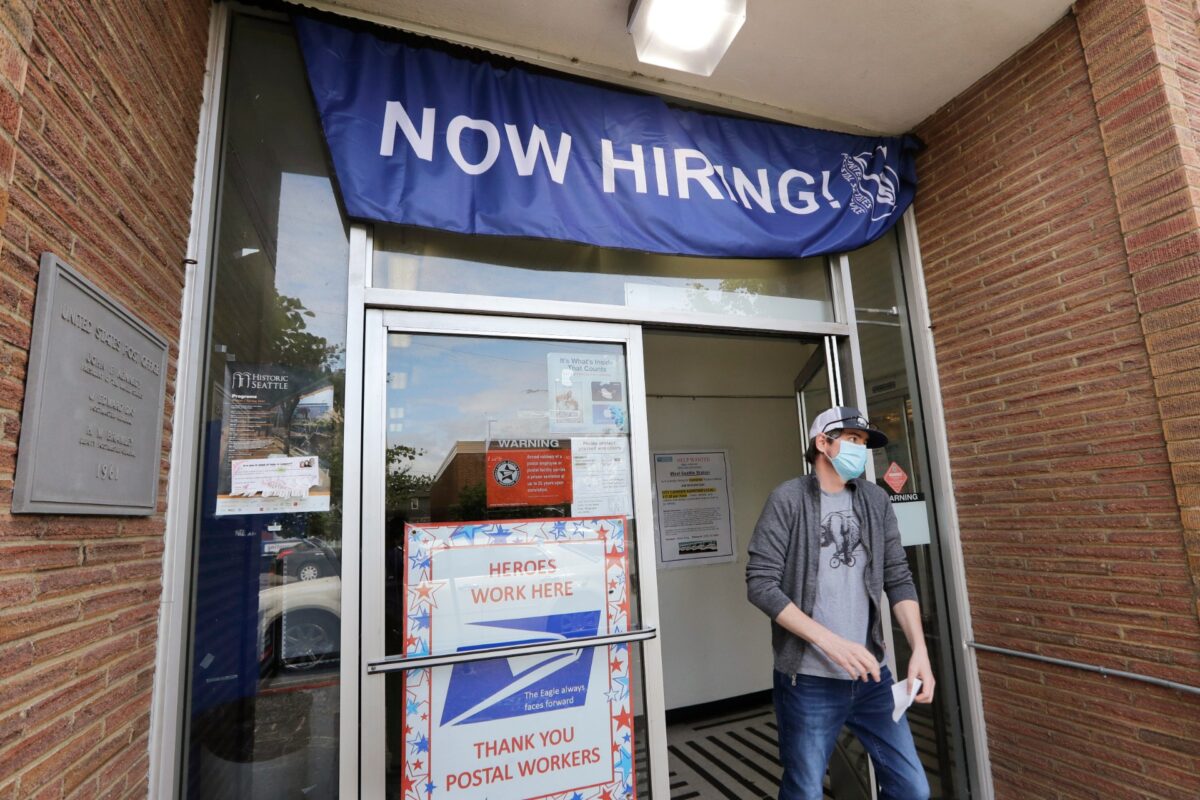
Job Growth Expected to Slow Sharply Over the Next Decade: Labor Department
The Labor Department expects job growth to slow significantly over the next decade compared to the e..
The Labor Department expects job growth to slow significantly over the next decade compared to the employment boom during the longest economic expansion in U.S. history, which was thrown into a tailspin by the outbreak of the Chinese Communist Party (CCP) virus.
In employment projections released Sept. 1, the agency said it expects the number of jobs to grow to 168.8 million from 162.8 million between 2019 and 2029. The increase of 6 million jobs represents an annual growth rate of just 0.4 percent, slower than the 1.3 percent growth rate during the 2009-19 decade, which was bolstered by recovery from the Great Recession.
The projections are based on structural, not cyclical, shifts, and they do not include the impacts of the CCP virus on the economy. Factors taken into account include trends like population and productivity growth, as well as the rate of economic expansion.
“Slower labor force growth constrains the projected growth of total employment,” the agency said, also projecting a sharp rebound in productivity growth, which is expected to grow at an annual rate of 1.8 percent from 2019 to 2029, compared to 1.1 percent growth from 2009 to 2019.
Studies have probed whether productivity growth, which includes technology and automation driven efficiencies, constrains employment. A discussion paper from the University of Sydney in Australia (pdf) concluded that “there appears to be evidence for a trade-off between productivity growth and employment.”
The Labor Department noted that while technological advancements are expected to drive rapid employment growth in some sectors, including professional, business, and scientific services, they will fuel job cuts in other sectors, like manufacturing.
“Factors contributing to the loss of manufacturing jobs include the adoption of new productivity-enhancing technologies, such as robotics and international competition,” the agency said.
The manufacturing sector, which includes 12 of the 20 industries projected to suffer the fastest employment declines, is projected to shed 444,800 jobs over the next decade, the most of any sector.
Retail trade, another industry impacted by technological advancement, is projected to lose 368,300 jobs in the time period in question.
The agency noted a slight decline in the population growth rate and a relatively sharp drop in labor force participation.
“The decline in labor force participation is due to the aging of the baby-boom generation, a continuation of the declinRead More – Source

